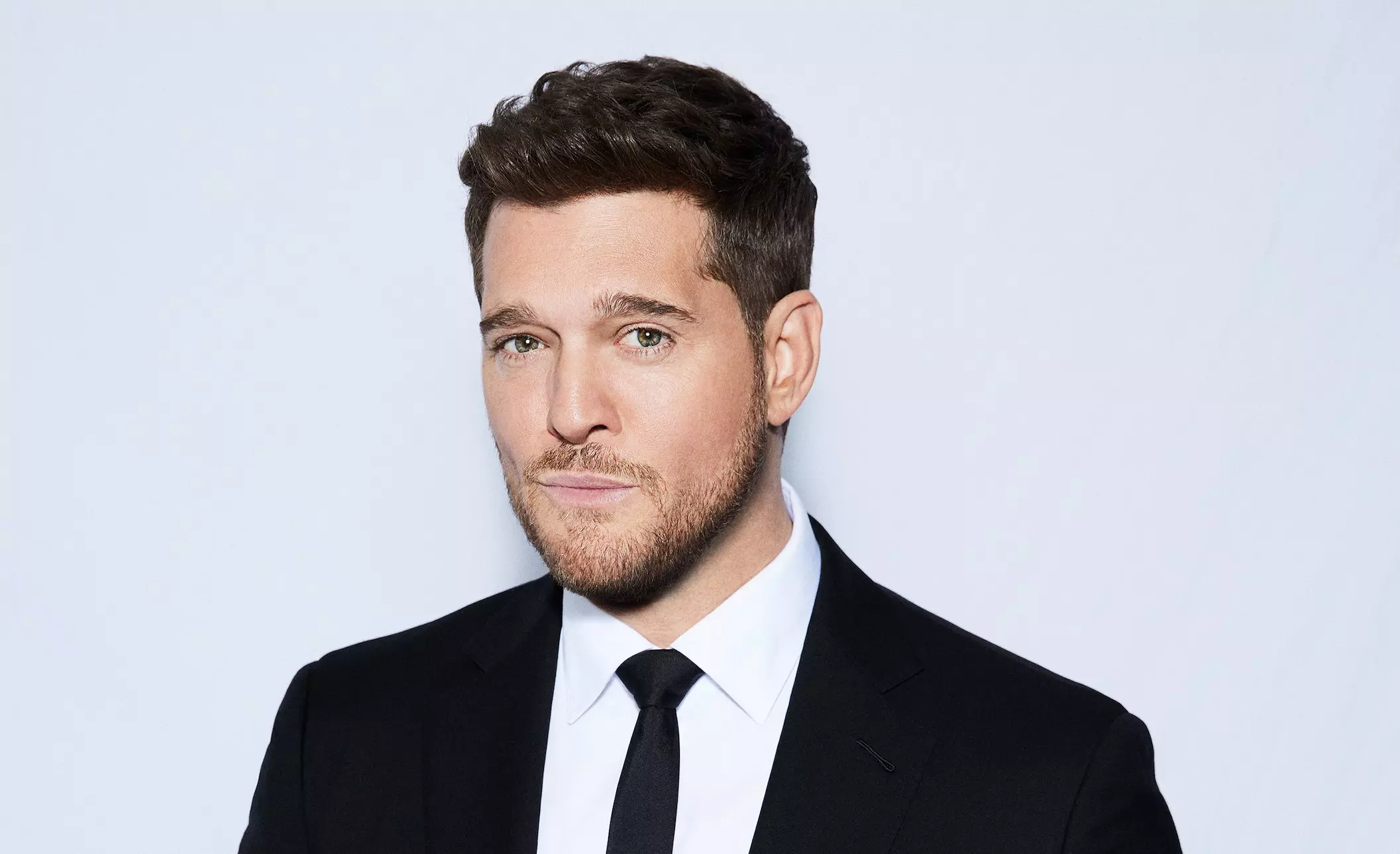Photo: Tim Mosenfelder/Getty Images

feature
How 'Petty Country: A Country Music Celebration' Makes Tom Petty A Posthumous Crossover Sensation
On 'Petty Country,' Nashville luminaries from Willie Nelson to Dolly Parton and Luke Combs make Tom Petty’s simple, profound, and earthy songs their own — to tremendous results.
If Tom Petty and the Heartbreakers landed in 2024, how would we define them? For fans of the beloved heartland rockers and their very missed leader, it's a compelling question.
"It's not active rock. It's not mainstream rock. It's not country. It would really fall in that Americana vein," says Scott Borchetta, the founder of Big Machine Label Group. "When you think about what his lyrics were and are about, it's really about the American condition."
To Borchetta, these extended to everything in Petty's universe — his principled public statements, his man-of-the-people crusades against the music industry. "He was an American rebel with a cause," Borchetta says. And when you fuse that attitude with big melodies, bigger choruses, and a grounded, earthy perspective — well, there's a lot for country fans to love.
That's what Coran Capshaw of Red Light Management bet on when he posited the idea of Petty Country: A Country Music Celebration of Tom Petty, a tribute album released June 21. Featuring leading lights like Dolly Parton ("Southern Accents"), Willie and Lukas Nelson ("Angel Dream (No. 2)," Luke Combs ("Runnin' Down a Dream"), Dierks Bentley ("American Girl,") Wynonna and Lainey Wilson ("Refugee"), and other country luminaries covering Tom Petty classics, Petty Country is a seamless union of musical worlds.
Which makes perfect sense: on a core level, Petty, and his band of brothers, were absolutely steeped in country — after all, they grew up in the South — Gainesville, Florida.
"Tom loved all country music. He went pretty deep into the Carter Family, and "Will the Circle Be Unbroken?" and the folk, Americana heart of it," says Petty's daughter, Adria, who helps run his estate. "Hank Williams, and even Ernest Tubb and Patsy Cline… as a songwriter, I think a lot of that real original music influenced him enormously." (The Flying Burrito Brothers, and the Byrds' Gram Parsons-hijacked country phase, were also foundational.)
A key architect of Petty Country was the man's longtime producer, George Drakoulias. "He's worked with Dad for a hundred years since [1994's] Wildflowers, and he has super exquisite taste," Adria says.
In reaching out to prospective contributors, he and fellow music supervisor Randall Poster started at the top: none other than Willie Nelson and Dolly Parton. "Having Willie and Dolly made people stand up and pay attention," Dreakoulias told Rolling Stone, and the Nashville floodgates were opened: Thomas Rhett ("Wildflowers"), Brothers Osborne ("I Won't Back Down"), Lady A ("Stop Draggin' My Heart Around"), and so many others.
Each artist gave Petty's work a distinctive, personal spin. Luke Combs jets down the highway of "Runnin' Down the Dream" like he was born to ride. Along with Yo-Yo Ma and founding Heartbreakers keyboardist Benmont Tench, Rhiannon Giddens scoops out the electronics and plumbs the droning, haunting essence of "Don't Come Around Here No More."
And where a lesser tribute album would have lacquered over the songs with homogenous Nashville production, Petty Country is the opposite.
"I'm not a fan of having a singular producer on records like this. I want each one of them to be their own little crown jewel," Borchetta says. "That's going to give us a better opportunity for them to make the record in their own image."
This could mean a take that hews to the original, or casts an entirely new light on it. "Dierks called up and said, 'Hey, do you think we would be all right doing a little bit more of a bluegrass feel to it?' I was like, 'Absolutely. If you hear it, go get it.'"
"It had the diversity that the Petty women like on the records," Adria says, elaborating that they wanted women and people of color on the roster. "We like to see those tributes to Tom reflect his values; he was always very pro-woman, which is why he has such outspoken women [laughs] in his wake."
Two of Petty Country's unquestionable highlights are by women. Margo Price chose "Ways to Be Wicked," a cut so deep that even the hardcore Petty faithful might not know it; the Let Me Up (I've Had Enough) outtake was buried on disc six of the 1995 boxed set Playback.
"Man, it's just one of those songs that gets in your veins," Price says. "He really knew how to twist the knife — that chorus, 'There's so many ways to be wicked, but you don't know one little thing about love.'" Founding Heartbreakers guitarist Mike Campbell features on the dark, driving banger.
And all interviewed for this article are agog over Dolly Parton's commanding take on "Southern Accents" — the title track of the band's lumpy, complicated, vulnerable 1985 album of the same name. "It's just revelatory… it brings me to my knees," Adria says. "It's just a phenomenal version I know my dad would've absolutely loved."
"It's one of Dolly's best vocals ever, and it's hair-raising," Borchetta says. "You could tell she really felt that track, and what the song was about."
Adria is filled with profuse gratitude for the artists preserving and carrying her dad's legacy.
"I'm really touched that these musicians showed up for my dad," she says. "A lot of people don't want to show up for anything that's not making money for them, or in service to their career, and we really appreciate it… I owe great debt to all of these artists and their managers for making the time to think about our old man like that."
Indeed, in Nashville and beyond, we've all been thinking about her old man, especially since his untimely passing in 2017. We'll never forget him — and will strum and sing these simple, heartfelt, and profound songs for years to come.
Let Your Heart Be Your Guide: Adria Petty, Mike Campbell & More On The Enduring Significance Of Tom Petty's Wildflowers
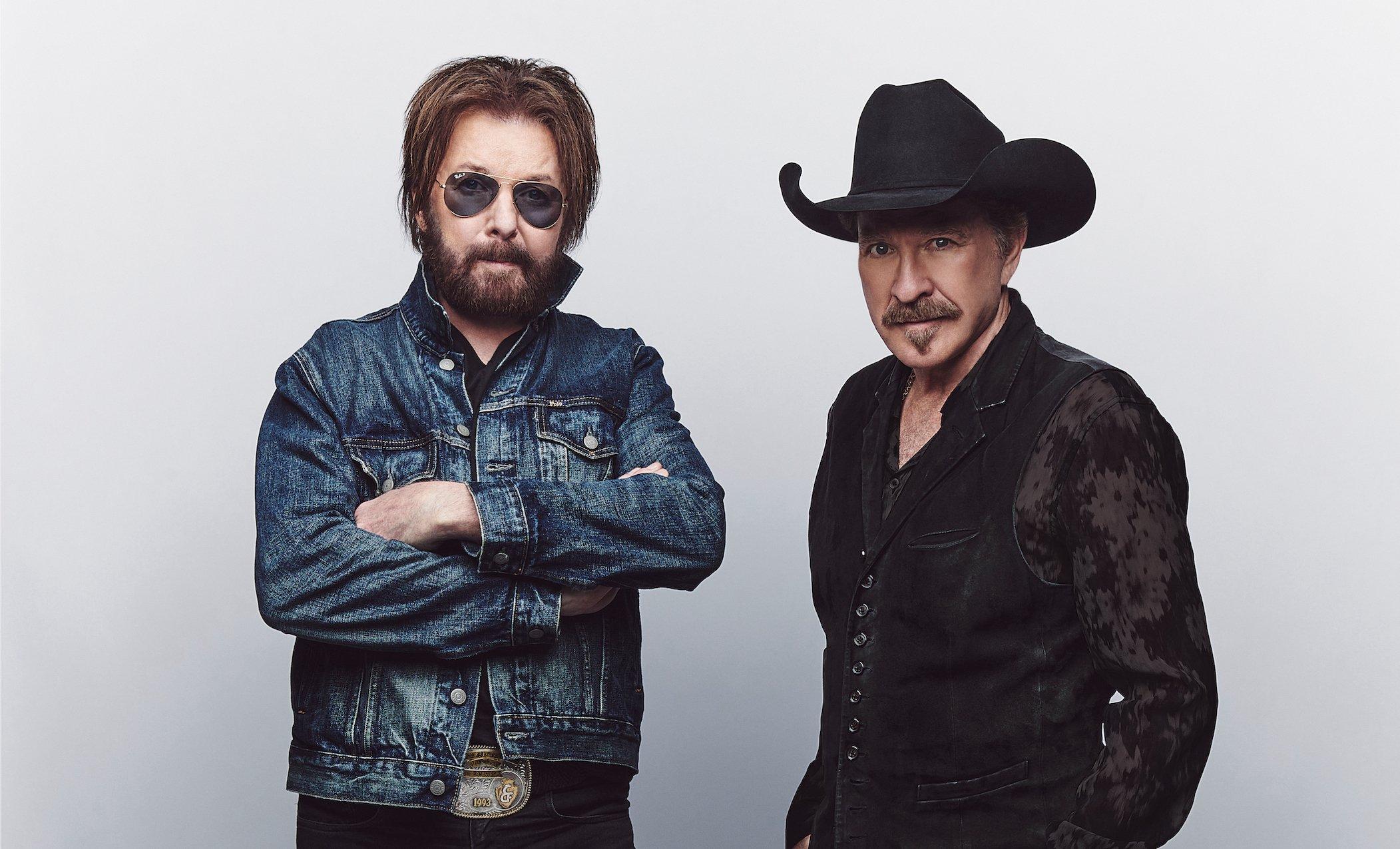
Photo: Matthew Berinato
interview
Living Legends: Brooks & Dunn On How 'Reboot II' Is A Continuation Of "Winging It From Day One"
The iconic country duo detail how their latest collaboration project — which includes covers by the likes of Jelly Roll, Lainey Wilson, Riley Green and more — came to be, and how it may have inspired them to continue the legacy they've built.
Since bursting onto the scene in 1991 with their debut single and No. 1 hit "Brand New Man," Brooks & Dunn have gone on to not only become country music icons, but an inspiration to countless artists that have followed them. That influence has led to not one, but two albums dedicated to their legacy: 2019's Reboot and Reboot II, which just dropped on Nov. 15.
While the first Reboot is filled with features from fellow country power players such as Luke Combs, Kacey Musgraves, and Thomas Rhett, Reboot II sees the duo dabbling with rock (Halestorm), bluegrass (The Earls of Leicester), and blues (Christone "Kingfish" Ingram). Of course, the 18-track Reboot II has plenty of country to it, too, with the likes of Lainey Wilson, Riley Green and other torchbearers of the modern country movement offering their takes on classics like "Play Something Country" and "She Used to Be Mine."
Between the two Reboot albums, 15 of Brooks & Dunn's 20 No. 1 hits are reimagined. Six songs appear on both, but certainly don't sound like reiterations; for one, "Boot Scootin' Boogie" went from a true-to-form collaboration with Midland on Reboot to a hard-rock thrasher by Halestorm on Reboot II. Whether the songs stick to the original blueprint or take on entirely different forms, the Reboot albums celebrate the timelessness and versatility of Brooks & Dunn's music — and as Kix Brooks insists, it gives the duo a hint of excitement more than three decades into their career.
"At least with this Reboot series people will be going, 'Holy crap, I can't believe they freaking did that!,'" Brooks tells GRAMMY.com. "At this point in our careers we want some kind of reaction, good or bad, so let's stir it up."
The two-time GRAMMY-winning duo caught up with GRAMMY.com to talk about their favorite moments from recording Reboot II, how the genre has changed since their breakthrough, and why there's a "good chance" new music may be on the way.
How'd the idea for this Reboot series start?
Ronnie Dunn: It was completely not our idea, but rather our manager's, Clarence, who never has a good idea [Laughs]. He did all the legwork, calling only once so to not pester people. If we didn't get a call back, that was fine, we'd just move onto the next one. But everyone he called got back to him and said they wanted in.
**There's a handful of songs — like "Neon Moon," "Indian Summer" and "Brand New Man" — that are on both Reboot I and II. What was the intention behind that?**
Dunn: It was more about the freedom of the other artists to choose whatever songs they wanted. We didn't dictate anything.
**On Reboot II, you went beyond the country realm. What was it like learning to navigate the songs in an entirely new way?**
Dunn: There's an adage that country music fans don't really embrace change that fast, and because of that, there's some stuff on this record that scared me at first.
At the same time, it's fun to go online on occasion to see the comments about the songs that have some saying, "That's wrong, it shouldn't be done that way," and others saying, "This is great stuff." There's a little danger element for us as a result, like, we could get kicked out of country music for two or three songs here [Laughs]. But it could also be the best way to earn a GRAMMY.
I think it's also evidence of how much your music and legacy is appreciated even outside of country music, when you have all these folks from other music circles involved and resonating with your songs.
Dunn: That's been a key for us, being able to go out and bring in new fans without alienating the steadfast group we have chasing us around now.
Kix Brooks: There's certainly two approaches to making a record like this. The first one is re-cutting the songs the way we always have, but there's already been so many tribute records like that where I've dropped a needle on two or three songs and went, "Okay, now I don't really care anymore." At least with this Reboot series people will be going, "Holy crap, I can't believe they freaking did that!" At this point in our careers we want some kind of reaction, good or bad, so let's stir it up.
The first [Reboot in 2019] was a bit more organized, but with this one we encouraged everyone to run with their wild ideas. Several of them even brought in their own bands this time, which only Kacey Musgraves did the first time around.
Dunn: She was the only one that deviated from the norm, but this time it's nothing but that in spirit. That's what made it fun — because deep down, Kix and I are just songwriters, so to hear a fresh twist put to this stuff is legitimately really fun.
Speaking of fresh twists, tell me about bringing Halestorm in to record "Boot Scootin' Boogie."
Dunn: That's the song I'm most afraid of, even though I love what they do and what they did to the song. It was my crazy idea making the call to our manager to see if we could get someone like Metallica to cover the song, and they did everything we asked them to do. This is music, not life and death. We're out here just having fun and seeing what we can do.
Brooks: There were a couple cool moments with [producer] Dann Huff. Halestorm had just come into the studio from having just sold out [OVO Arena Wembley in London] two days prior to making it back to Nashville to cut this thing. Despite this, when they came in, they were prepared. They had rehearsed and learned the song and the way they wanted to do it, then they hit it.
I remember Dann getting the biggest grin on his face as he looked over to the console and said, "This band is so freaking good!" They were really tight and brought it every time. And the way [Lzzy Hale] can sing is mind-boggling.
Dunn: She can sing like she's gargling a chainsaw, and the next day still go do a show. If I did that I'd be down for a week!
That song, along with others like the Earls of Leceister's "How Long Gone," A Thousand Horses' "Drop In The Bucket," and Marcus King's "Rock My World (Little Country Girl)" that deviate from the norm are my favorites on this project. I love how y'all really let each guest artist make the tunes their own.
Brooks: Marcus King was one that really blew me away. That guy sings so high! There was a point in the song where I asked Dann if I could have a moment with Marcus. [I] proceeded to tell him, "[Your] guitar solo is 16 bars, but do you have a problem with going ahead and throwing down 32 instead?" He lit up and yelled to his band, "Alright, enough of this Nashville bulls—. We're freaking South Carolina sons of b—es, now lets play!" Almost like a football cheerleader. It was awesome.
Dunn: Back in the day when we were in college, I lived for guitar solos that go on forever. So it was so refreshing to hear that, especially in Nashville. We've come from a commercial slant of things for so long that it was like freedom breaking away from that formula.
Do y'all have any plans to continue this Reboot series and possibly break into even more genres, like Latin music or hip-hop?
Dunn: We've been winging it from day one, man. We never plan anything. Never have, never will.
Brooks: When we were making Reboot I, [if] you asked if we'd make another, I would've said that I don't think there's any room for that. We just did it, and I'm glad as hell we did because it's a totally different experience where you never know what's coming next.
If you could choose any musician(s) to do a Reboot collab with dead or alive, who would they be?
Dunn: That's a tough question, but let's start with the [Rolling] Stones, Eric Clapton, Paul Carrack, and Stevie Ray [Vaughan].
Brooks: I was thinking Tom Petty and Mike Campbell…
I guess any collaboration is possible nowadays with AI.
Dunn: Talk about frightening.
What's the most important lesson y'all have learned in the past 30+ years of Brooks & Dunn?
Dunn: How big a part of the whole success equation that luck plays. Everybody asks what is it? Is it luck? Is it persistence? Is it patience? We're just sitting around here goofing off, and things like this drop out of the sky on us, which they seem to have done for 35 years now.
Brooks: The timing was just right. The fact that we literally got put together by a record [label] guy in 1990 and had four No. 1 hits in a row is just stupid, especially to be here 34 years later still having the time of our lives and selling out shows.
Dunn: In 1988, I was playing beer joints in Oklahoma and sneaking over to Texas with a van and a horse trailer carrying our equipment, loading it up, putting it on stage, and all that. In early 1991 we had our first No. 1 hit ["Brand New Man"]. It just fell out of the sky on us.
Brooks: That's how weird it was. We didn't even have Instagram or the internet to help us out!
Since you mentioned the internet, I know a lot has changed in country music since y'all were first breaking through. What are your thoughts on that evolution and how things are, or aren't, different now?
Dunn: We've seen it go through several phases and watched many artists come and go, like with the Bro Country era.
Brooks: There's some artists like Bailey Zimmerman who got big from throwing stuff up on TikTok before getting a band together and playing in clubs, but they're really good and the songs are there nonetheless. It'll be interesting to see how all that plays out in the long term. However, there's also a bunch of artists out there still piling into vans going from gig to gig trying to figure out who's sober enough to drive tonight, which is where we came from.
I talk with a lot of young acts and all they want to talk about is their socials and how this one song blew up, but eventually at some point I can't help myself and go, "So, are you playing out? Have you got a band? How many gigs did you do last year? Are you completely obsessed with getting out and playing for people?" because that's where Ronnie and I came from.
Dunn: It's like working out in the gym. If you want to be a professional football player, you've got to go play and come up through the ranks and bang your head in the bars, that kind of stuff. Of course now you don't, which is just kind of hard to digest. But there's nothing negative about the process. It's just a sign of the times and how it's changed.
Brooks: I have seen some acts that just look real uncomfortable on stage, and I'm like, "I hope you can hang in long enough to figure this out, because you obviously haven't done this very much."
Dunn: We had immediate feedback in those clubs. All you had to do coming through the bars was play covers, you couldn't really get away with doing original songs.
I remember playing four sets a night and sneaking "Boot Scoot" in during the third one time only to have a group of girls walk over afterward asking if I'd play it again. They didn't know the name and weren't familiar with the lyrics, but it had a beat that immediately appealed to people. Sure enough, that's one of the songs that got us off the ground. I guess that's a role that social media fills now, but I'd rather be looking someone in the face when they tell me that they love my singing or a particular song.
What do you each appreciate the most about one another as bandmates and counterparts?
Dunn: I think that the biggest thing we appreciate about one another is that we were grown men when we showed up to the game. And we kind of look at the world through the same eyes. We don't always agree, but when we do have those disagreements, we've never raised our voices to one another or had a serious falling out in any way. I'm proud of the way we've kept the partnership alive over the years.
Brooks: It's hard to put a finger on the chemistry that has made us successful and kept us together. Ronnie is obviously a great singer and even though I can sing a little too along with playing guitar and harp, I think it's what we've always brought to the stage that has a lot to do with our longevity, which is what folks want to come and be a part of. We've written some good songs together and I don't think we're done yet, but putting 'em out there live and sharing that love for what we do is really what we both live for.
Has working on Reboot inspired y'all to record any new music in the future?
Brooks: This last project has been a great reminder how much we enjoy making music. There's a good chance this will motivate us further to release some of these new songs we've been working on.
Dunn: I've been working on trying to make a new record happen over the last three or four years, writing nonstop. I know Kix is working on it, too. We just have to get around to taking the time to sit in the studio after Reboot runs its course and come up with an original Brooks & Dunn record. But it has to be good, dude.
Latest News & Exclusive Videos
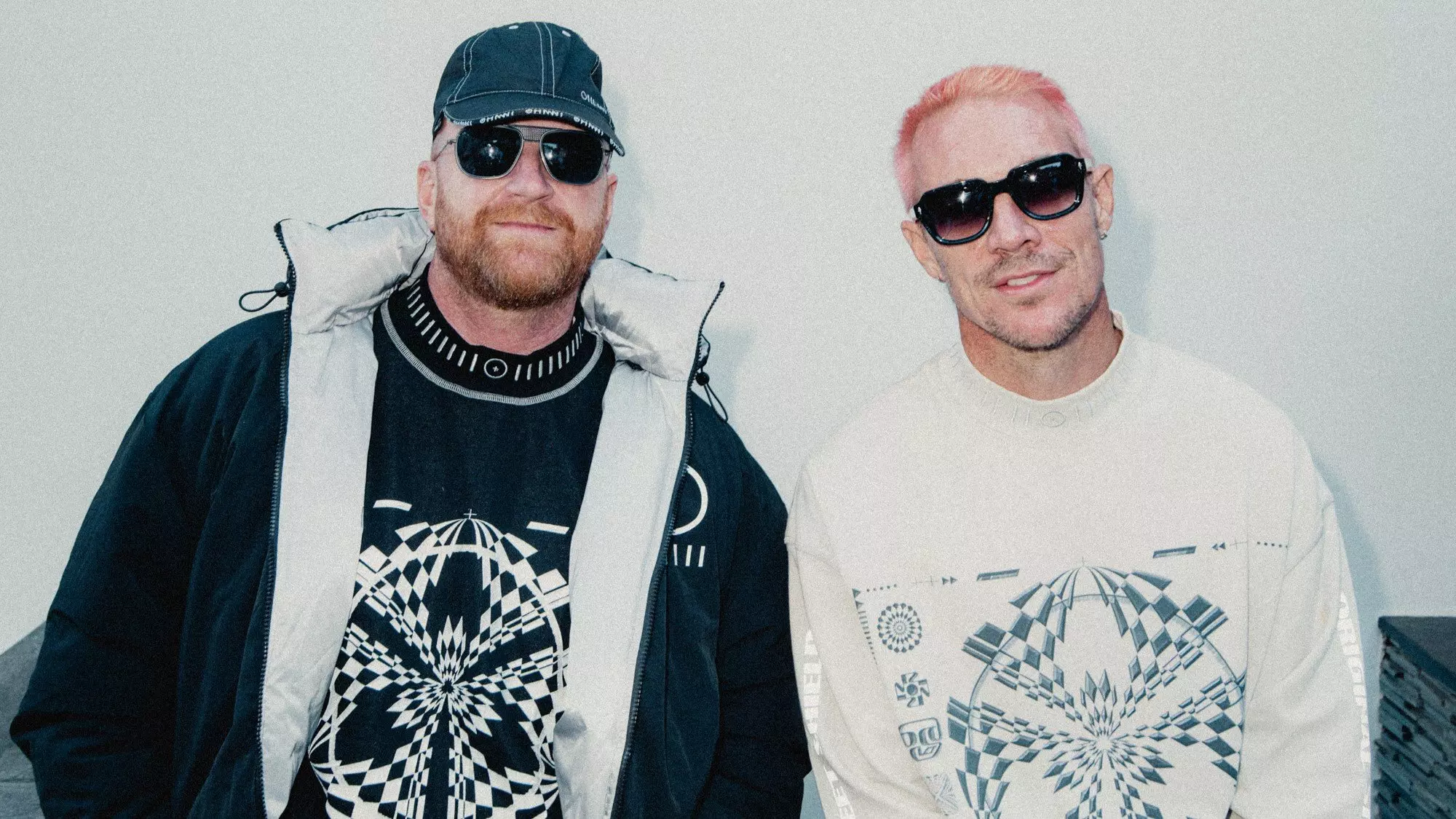
How Major Lazer's 'Guns Don't Kill People…Lazers Do' Brought Dancehall To The Global Dance Floor

YOASOBI Performs "Idol" | Global Spin
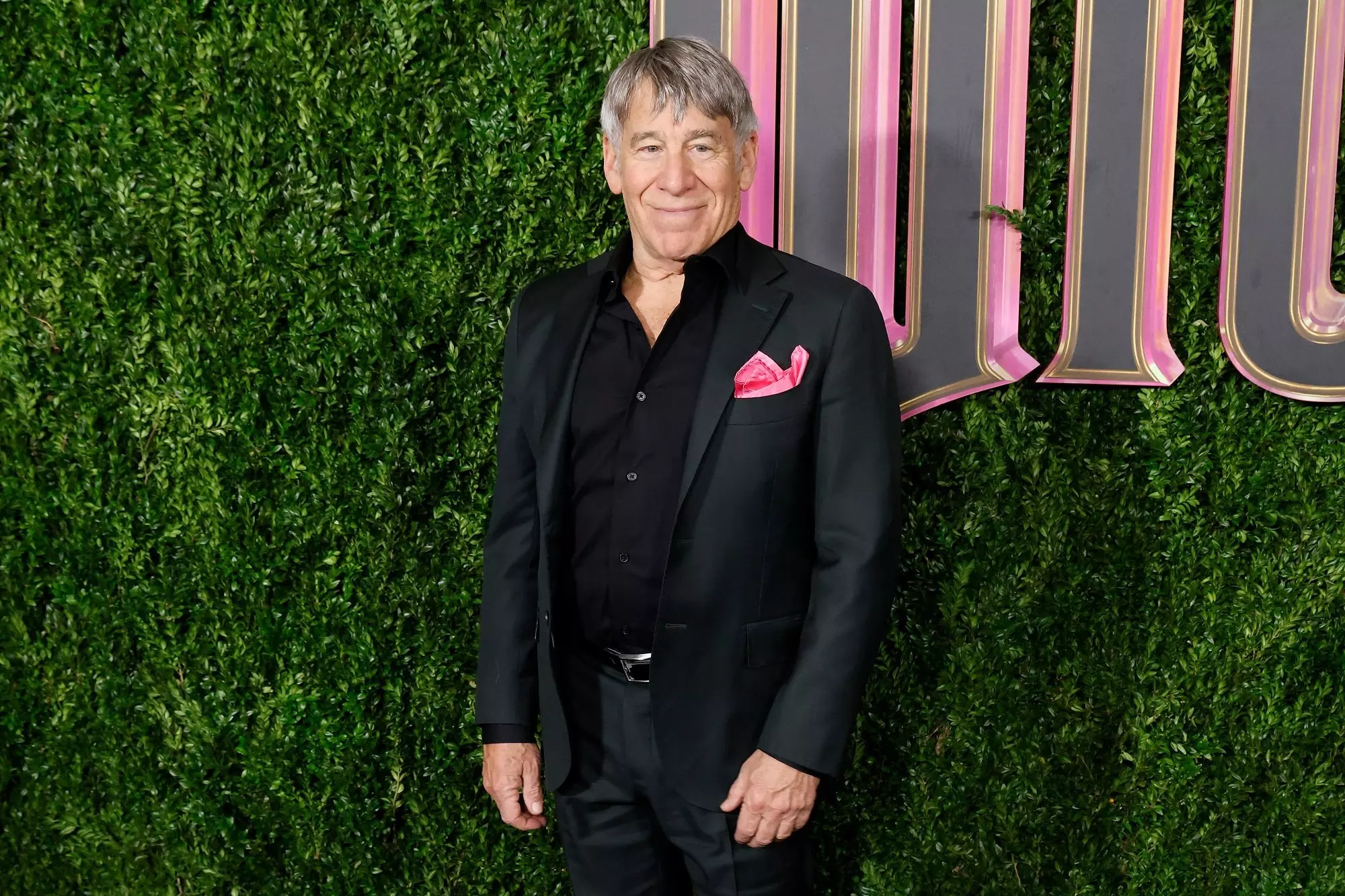
'Wicked' Composer Stephen Schwartz Details His Journey Down The Yellow Brick Road
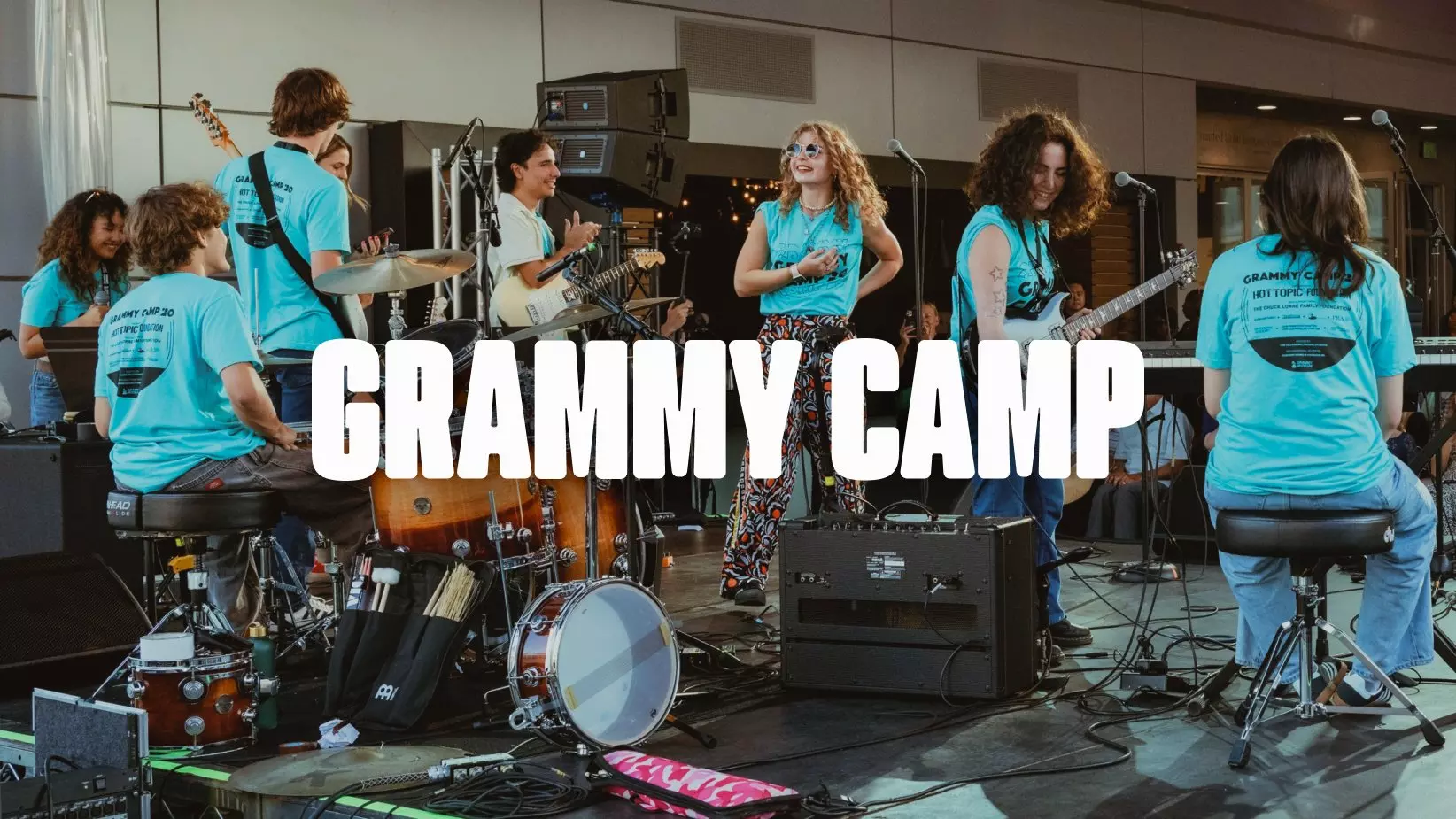
GRAMMY Museum Expands GRAMMY Camp To New York & Miami For Summer 2025
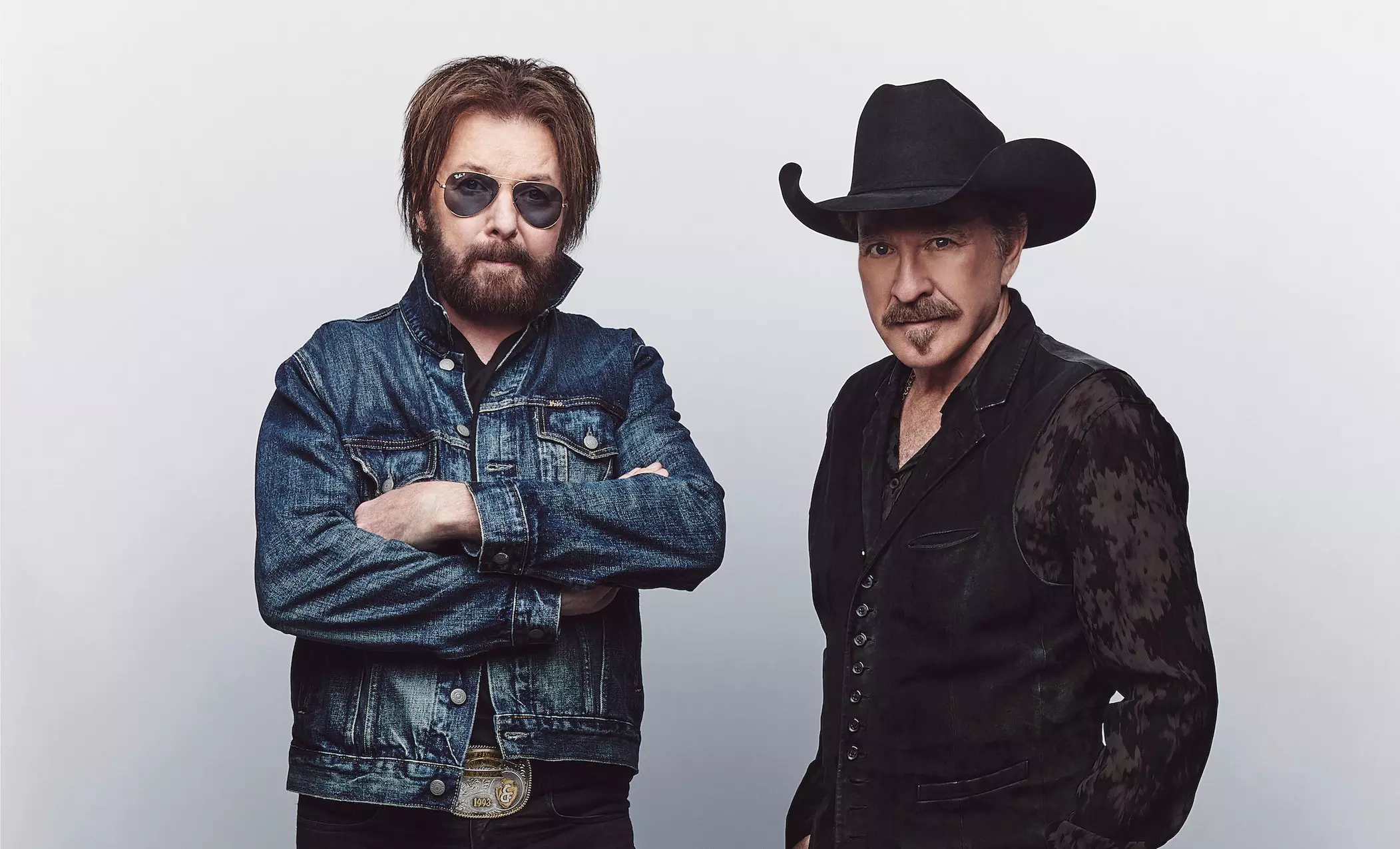
Living Legends: Brooks & Dunn On How 'Reboot II' Is A Continuation Of "Winging It From Day One"
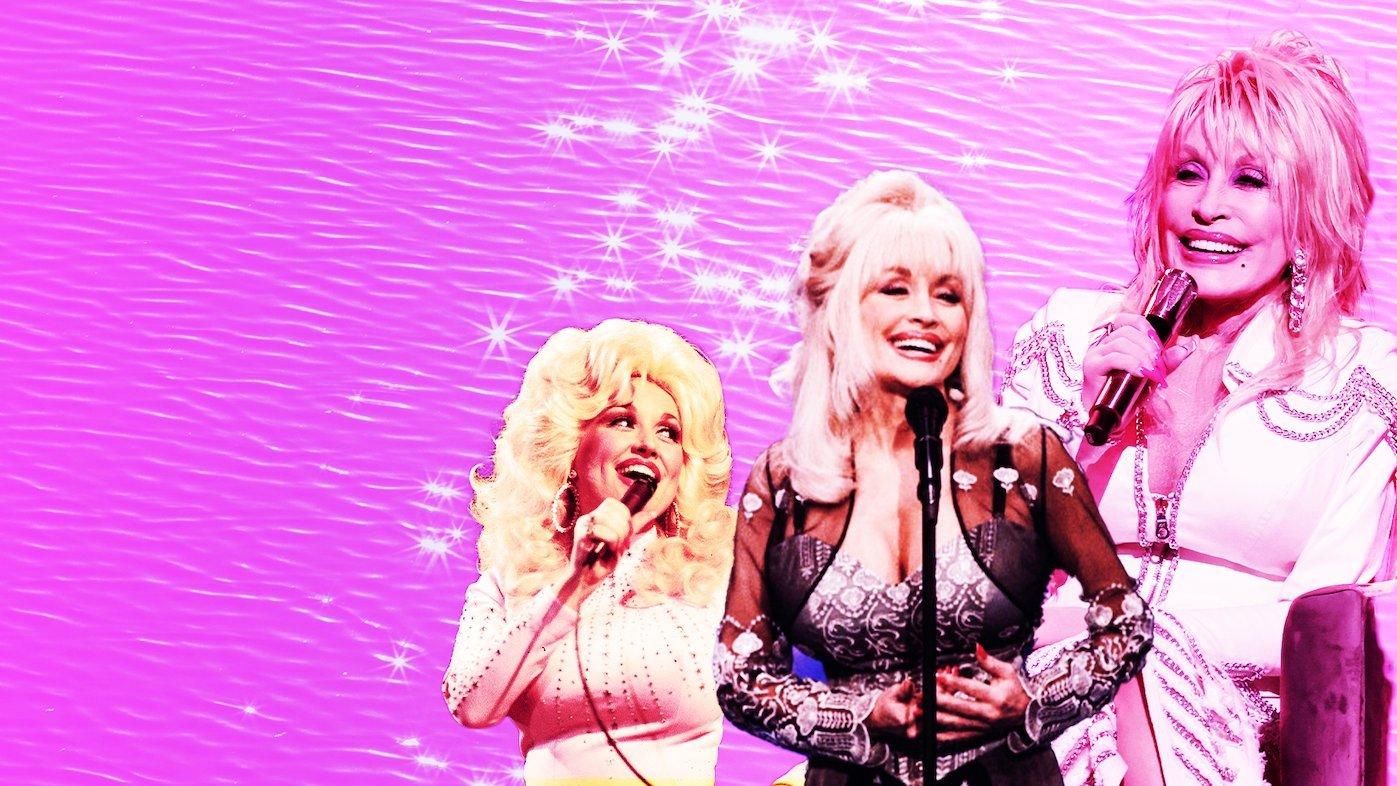
(L-R) Andrew Putler/Redferns, Margaret Norton/NBCU Photo Bank/NBCUniversal via Getty Images, Jason Kempin/Getty Images
feature
Songbook: How Dolly Parton Became The Queen of Country, From Her Songwriting Prowess To Her Effervescent Charm
In honor of the beloved icon's 50th album, 'Dolly Parton & Family: Smoky Mountain DNA,' take a deep dive into the extraordinary career that has helped her conquer the music industry, the acting scene and the world.
"After you reach a certain age, they think you're over. Well, I will never be over," Dolly Parton once declared. "I'll be making records if I have to sell them out of the trunk of my car. I've done that in my past, and I'd do it again."
Just as proficient with the razor-sharp quip as a timeless song, the inimitable country queen has thankfully never needed to rely on such primitive distribution methods. In fact, more than 60 years after Parton first entered the recording studio, the self-proclaimed Backwoods Barbie is shifting more units than ever before: 2023's Rockstar achieved both her highest first-week sales (128,000) and position on the Billboard 200 (No. 3) of her career.
That only boosted Parton's already remarkable worldwide record sales total of over 100 million, and took her tally of Top 10 country albums to 49. Throw in the record-matching 25 No. 1s on Billboards Hot Country Songs chart, three billion streams, and 11 GRAMMY Awards from 54 nominations, and it's clear why she'll forever be known as the Queen of Nashville.
Of course, Parton has had her commercial ups and downs over the years. But the quality of her music has always remained impeccably high, whether the traditional country of her late '60s beginnings, the crossover pop of her early '80s imperial phase, or the eclectic forays into bluegrass, gospel, and good old-fashioned rock 'n' roll that has made her 21st century discography so wonderfully unpredictable.
Further dispelling the title of her first hit "Dumb Blonde," the bulk of Parton's 50 studio efforts have been self-penned or self-produced, sometimes both. Indeed, "Coat of Many Colors," "Jolene," "I Will Always Love You," "9 to 5," and her countless other additions to the Great American Songbook have come from her prolific pen (she's reportedly composed a colossal 3,000 tunes). Yet, as proven by chart-topping renditions of "Heartbreaker," "Old Flames Can't Hold A Candle to You," and "But You Know I Love You," along with covers albums Those Were the Days and Treasures, Parton is just as gifted a song interpreter as she is songwriter.
The legendary singer added yet another album to her discography on Nov. 15, this time recruiting her loved ones for Dolly Parton & Family: Smoky Mountain DNA – Family, Faith and Fables. In celebration of Parton's latest LP, look back at the many phases of her career that have helped make her an enduring icon.
The Country Starlet
Having written hits for the likes of Bill Phillips and Skeeter Davis in her teens, the prodigious Dolly Parton became a chart star in her own right when her 1967 debut album, Hello, I'm Dolly, reached the Top 20 of Billboard's US Top Country Albums chart. Remarkably, her first label, Monument, had initially been hesitant in allowing her to pursue the Nashville sound that would quickly become her forte. Loyal viewers of "The Porter Wagoner Show" were equally skeptical when she replaced favorite Norma Jean on the weekly country show.
However, Parton soon won over audiences with her natural charm, distinctive vibrato, and ability to tell a story in the most engaging, tuneful way possible. Over the next eight years, she continually flitted between collaborative LPs with Wagoner and solo efforts, releasing a dozen of the former and 15 of the latter. Key records include 1969's Top 10 smash My Blue Ridge Mountain Boy, on which she received a writing credit on every song; 1971's Joshua, whose title track gave her the first of many country No. 1s; and its swift follow-up Coat of Many Colors, whose eponymous ballad Parton has cited as an all-time personal favorite.
It was on 1974's Jolene, however, where Parton began to court the mainstream. Both its same-named lead single and future Whitney Houston blockbuster "I Will Always Love You," which she famously wrote on the same day, became much-loved standards, with the former also giving Parton her debut entry on the Billboard Hot 100. 1976's All I Can Do, meanwhile, saw her pick up the first of 54 career GRAMMY nominations (Best Country Vocal Performance, Female). By this point, Parton had outgrown the man who'd helped steer her to country success beyond her wildest dreams. Now, the target was world domination.
Read More: 10 Songs You Didn't Know Dolly Parton Wrote: Hits By Whitney Houston, Kenny Rogers & More
The Genre-Bending Star
While Parton has always kept one foot in country waters, her 1977 first self-produced LP New Harvest... First Gathering – featuring covers of Jackie Wilson's "Higher and Higher" and The Temptations' "My Girl" – kickstarted a genre-hopping streak she continued to pursue throughout the following half-century.
On the same year's follow-up, Here You Come Again, she teamed up with Barbra Streisand cohort Gary Klein for a million-selling, pop-oriented affair whose title track reached a then-career high of No. 3 on the Hot 100. She flirted with disco on 1978's Heartbreaker ("Baby I'm Burning") and, as its Jerry Lee Lewis-inspired title suggests, classic rock 'n' roll on 1979's Great Balls of Fire. Her star was so rapidly rising that mainstream hitmakers Donna Summer ("Starting Over Again") and Carole Bayer Sager ("You're the Only One") queued up to give Parton some of their best works.
Free from the shackles of a major label, Parton delved deep into her love of bluegrass at the turn of the century for a trilogy of albums (1999's The Grass Is Blue, 2001's Little Sparrow, 2002's Halos and Horns) that garnered some of the most glowing reviews of her career. There were also ventures into gospel (2003's post-9/11 response For God and Country), children's music (2017's I Believe in You), and seasonal pop (2020's A Holly Dolly Christmas). Then in 2023, at 77 years young, she embraced her previously hidden rock chick side on the star-studded Rockstar (more on that later).
"I'm willing to try anything," Parton told Newsweek about her impressively eclectic approach. "What's the worst that's going to happen, if I can't do it? So what, at least I tried."
The Triple Threat
Having previously showcased her comedic skills on various TV specials, Parton was gifted the opportunity to star alongside Jane Fonda and Lily Tomlin in 1980's feminist favorite 9 to 5. And she more than held her own alongside the two Tinseltown greats with a pitch-perfect performance as the vengeful secretary Doralee, also scoring a Hot 100 chart-topper with its two-time GRAMMY-winning and Oscar-nominated titular theme.
Parton continued to prove her double-threat credentials throughout the decade and beyond. She earned a Golden Globe nomination for her magnetic turn as brothel owner Miss Mona in 1982's The Little Whorehouse in Texas, while simultaneously adding to the festive canon with "Hard Candy Christmas." She even managed to draw out a relatively listenable vocal from Sylvester Stallone while starring as a club-singing mentor in 1984's country music comedy Rhinestone.
After letting her acting do all the talking in 1989 weepie Steel Magnolias, Parton returned to double duty in 1991 TV movie Wild Texas Wind, 1992 rom-com Straight Talk, and 2012 gospel drama Joyful Noise. (All the while, she continued adding to her discography, releasing a dozen solo albums over the same period). While in 2021, she inched closer to the coveted EGOT when Dolly Parton's Christmas on the Square was awarded the Emmy for Outstanding Television Movie.
Having conquered Hollywood, Parton switched her attention in the mid-1980s to the theme park she cleverly rechristened Dollywood. Formerly known as Silver Dollar City, the attraction near her East Tennessee hometown of Pittman Center is only part of the star's business portfolio which also includes waterpark Dollywood's Splash Country, the Dream More Resort and Spa, and amusement park Dolly Parton's Stampede. Thanks to her shrewd business investments under the umbrella of The Dollywood Company – and let's not forget her forays into cake mixes, fragrances, and canine apparel – the singer has amassed a reported fortune of $450 million.
The Philanthropist
Of course, Parton has often used the vast wealth she's worked so hard to accrue for the greater good. In the mid-'80s, she set up the Dollywood Foundation with the main goal of increasing children's literacy through its Imagination Library initiative.
Inspired by her father, who was never taught how to write or read, the program has since been adopted by more than 1,600 communities across the world, with approximately 3.1 million children receiving a new book each month from birth to kindergarten. By October 2024, the Imagination Library had sent out an astonishing 254 million books!
That's far from Parton's only philanthropic endeavor, though. She's also helped to raise funds for various HIV/AIDS-related charities and the American Red Cross, fought for LGBTQIA+ rights (her 1991 song "Family" celebrated same-sex families), and donated $500,000 to a Sevierville cancer center to honor the physician, Robert F. Thomas, who helped bring her into the world.
Read More: 5 Ways Dolly Parton Has Promoted Peace & Global Unity
In more recent years, Parton has made headlines for her relief efforts in aid of various natural disasters. In 2016, she organized her own telethon for the victims of the Great Smoky Mountain Wildfires, raising $9 million as a result. She also donated a seven-figure sum to Vanderbilt University Medical Center during their research into the early days of the COVID-19 pandemic, a period she reflected upon on single, "When Life Is Good Again." And in 2024, she pledged $2 million to help with the recovery of her Tennessee hometown in the wake of Hurricane Helene.
"I get paid more attention than maybe some others that are doing more than me," a modest Parton told The Tennessean in 2022 about her status as the music industry's most altruistic figure. "I just give from my heart. I never know what I'm going to do or why I'm gonna do it. I just see a need and if I can fill it, then I will."
The National Treasure
Parton proved she still had plenty to offer when she returned to pure country in the late 2000s. She achieved her highest peak on the Billboard 200 at the time with the first release through her own Dolly Records label, 2008's Backwoods Barbie (No. 17), only to eclipse it just six years later when Blue Smoke made the Top 10. Soon after, she had 180,000 festivalgoers eating out of the palm of her hands when she performed classic hits including "Coat of Many Colors," "Here You Come Again" and "9 to 5" in the Glastonbury Legends slot.
A stage musical adaptation of 9 to 5 that reached both Broadway and the West End (and earned her another GRAMMY nod) helped to extend her legacy, too. As did 2016's Pure and Simple, which spawned her biggest U.S. tour for 25 years and became her first country chart-topper since 1991, and 2022's Run Rose, Run, a companion album to a thriller she co-wrote with novelist James Patterson.
If any further proof was needed of Parton's national treasure status, then she also picked up Lifetime Achievement awards at the 2011 GRAMMYS and 2016 CMAs. And although she took some persuading, the star finally accepted her place in the Rock and Roll Hall of Fame in 2023, where she also performed her 1991 hit "Rockin' Years" and a star-studded version of "Jolene."
Even now she's approaching her eighties, Parton has no plans to hang up her towering high heels. "I would never retire," she told Greatest Hits Radio in 2023. "I'll just hopefully drop dead in the middle of a song on stage someday, hopefully, one I've written."
The Beloved Collaborator
Few artists have embraced their collaborative spirit more than Parton. She recorded 12 studio albums with mentor Porter Wagoner during their stint as country music TV's golden duo; a 13th was released following a legal dispute five years after their fruitful partnership came to an end.
She famously shared her considerable talents with a slightly more hirsute crooner, Kenny Rogers, on their worldwide chart-topper "Islands in the Stream" and 1984 LP Once Upon a Christmas. And she formed not just one but two iconic supergroups, firstly teaming up with Emmylou Harris and Linda Ronstadt for 1987's Album Of The Year Grammy nominee Trio and its 1999 sequel, and then Loretta Lynn and Tammy Wynette for 1993's Honky Tonk Angels.
Parton also duetted on country hits with Willie Nelson ("Everything's Beautiful (In Its Own Way)"), Smokey Robinson ("I Know You By Heart"), and James Ingram ("The Day I Fall in Love") during the same period. She then continued to team up with her fellow veterans throughout the '00s and '10s including Judy Collins (a cover of Joni Mitchell's "Both Sides Now"), Rod Stewart (festive standard "Baby, It's Cold Outside"), and Yusuf Islam ("Where Do The Children Play?").
But Parton also started working with the younger generation of artists who'd grown up listening to her music, too — and not just in the country realm. She guested on Norah Jones' sophomore Feels Like Home, covered one of her signature hits "Jolene" with a cappella vocal group Pentatonix, and even teamed up with Mr. Worldwide himself, Pitbull, on party anthem "Powerful Women."
She seems particularly keen to pass the baton on to her goddaughter, Miley Cyrus; Parton co-penned (and featured on) a track for the two-time GRAMMY winner's rootsier sixth LP, Younger Now ("Rainbowland"), invited her to perform on seasonal album A Holly Dolly Christmas, and joined her in a rendition of "Wrecking Ball" for Rockstar. The latter is unarguably Parton's collaborative magnum opus, a 30-track foray into rock featuring a who's who of both classic (Steven Tyler, Stevie Nicks) and contemporary artists (Lizzo, Chris Stapleton) audibly delighted at the opportunity to sing with a living legend.
In 2024, Parton kept things in the family with Smoky Mountain DNA — Family, Faith and Fables, another musical epic — this time, rooted in the sounds of her heritage — featuring her niece Heidi, cousin Richie, and, thanks to some vintage audio recordings, her late grandfather Reverend Jake Owens.
"I cannot believe that it has been 60 years this month since I graduated from Sevier County High School and moved to Nashville to pursue my dreams," Parton remarked while announcing its release.
As one of the world's best-loved artists both inside and outside of the country world, she undoubtedly fulfilled them in iconic, rhinestone-studded style.
More Of The Latest Country Music & News

Living Legends: Brooks & Dunn On How 'Reboot II' Is A Continuation Of "Winging It From Day One"
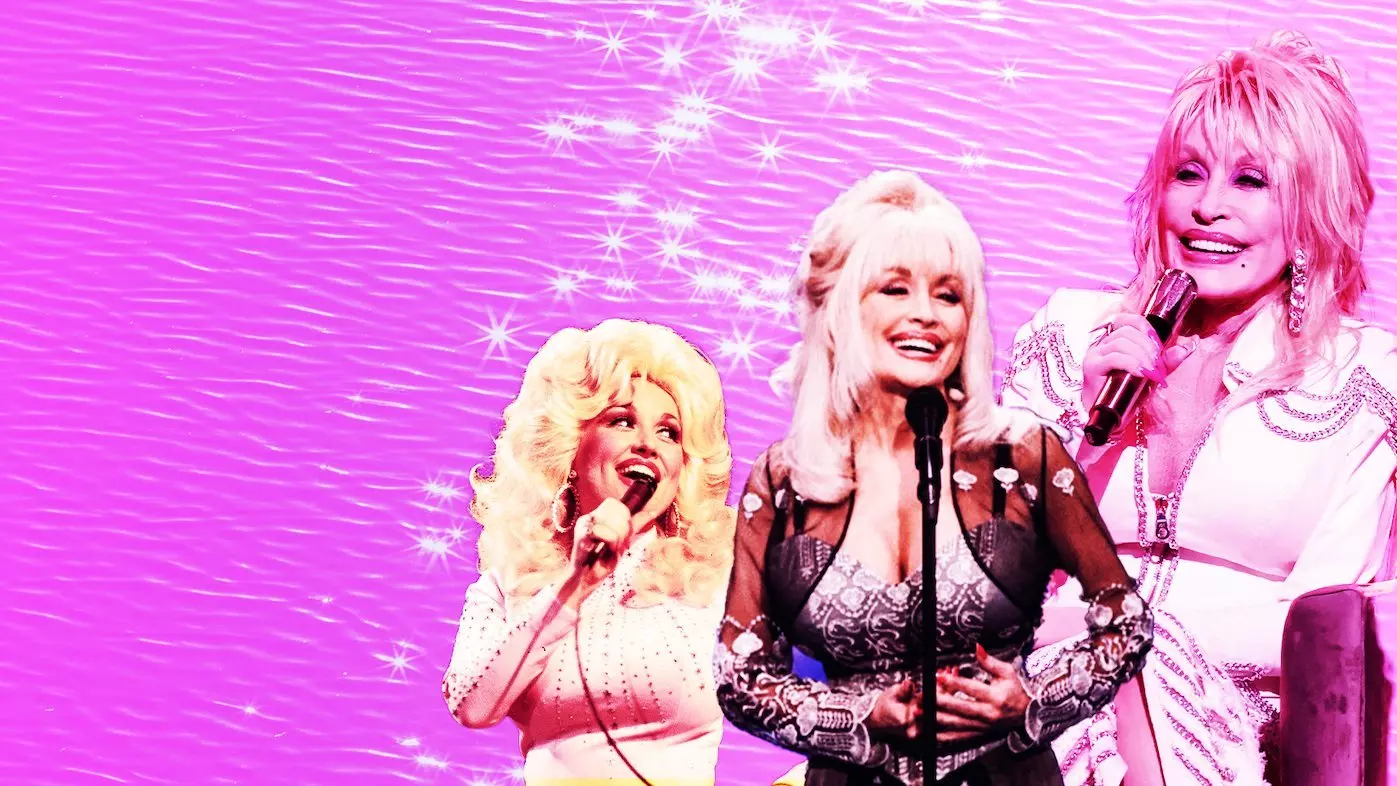
Songbook: How Dolly Parton Became The Queen of Country, From Her Songwriting Prowess To Her Effervescent Charm
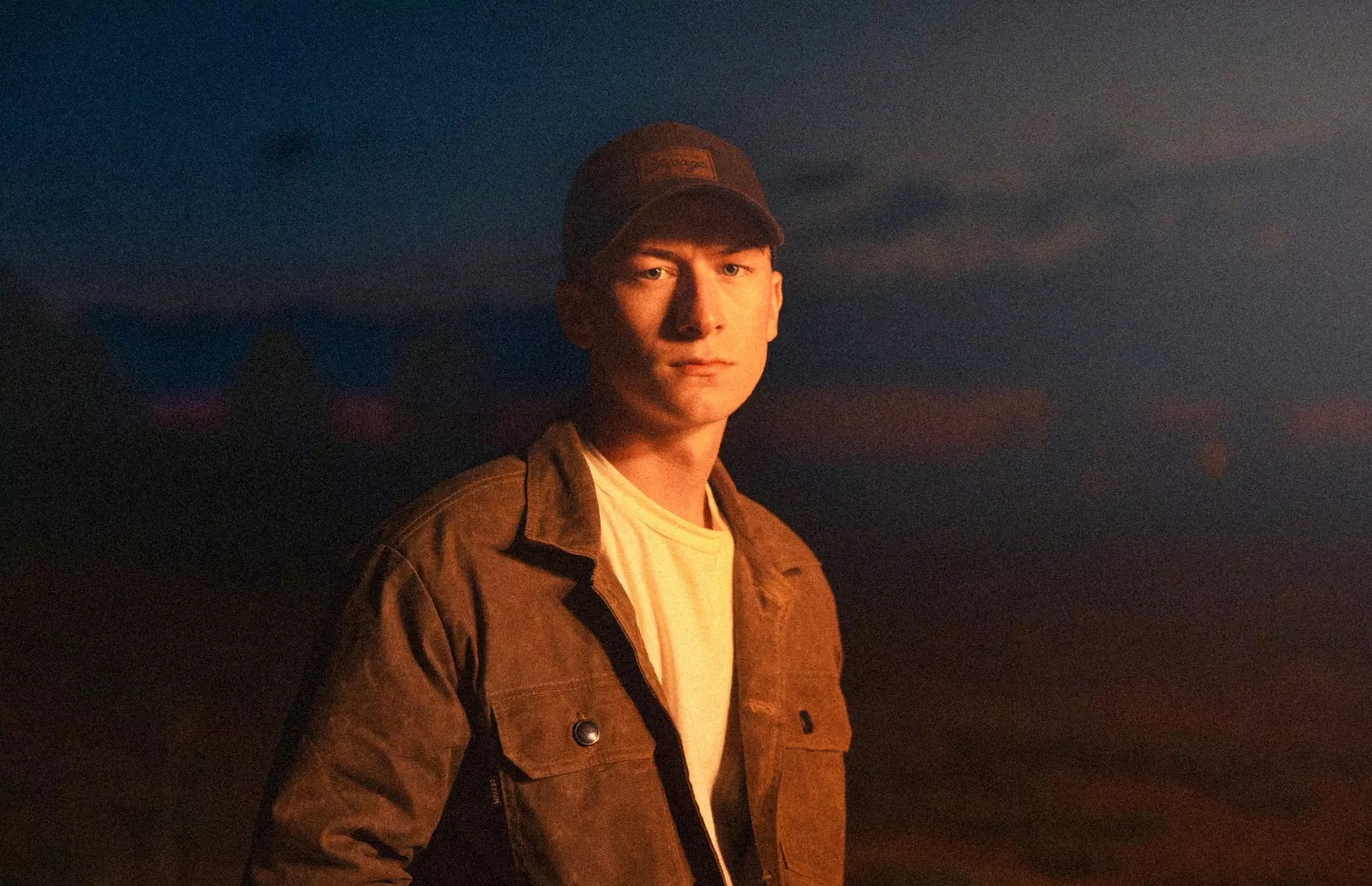
With 'Restless Mind,' Sam Barber Shows He's Wise Beyond His Years
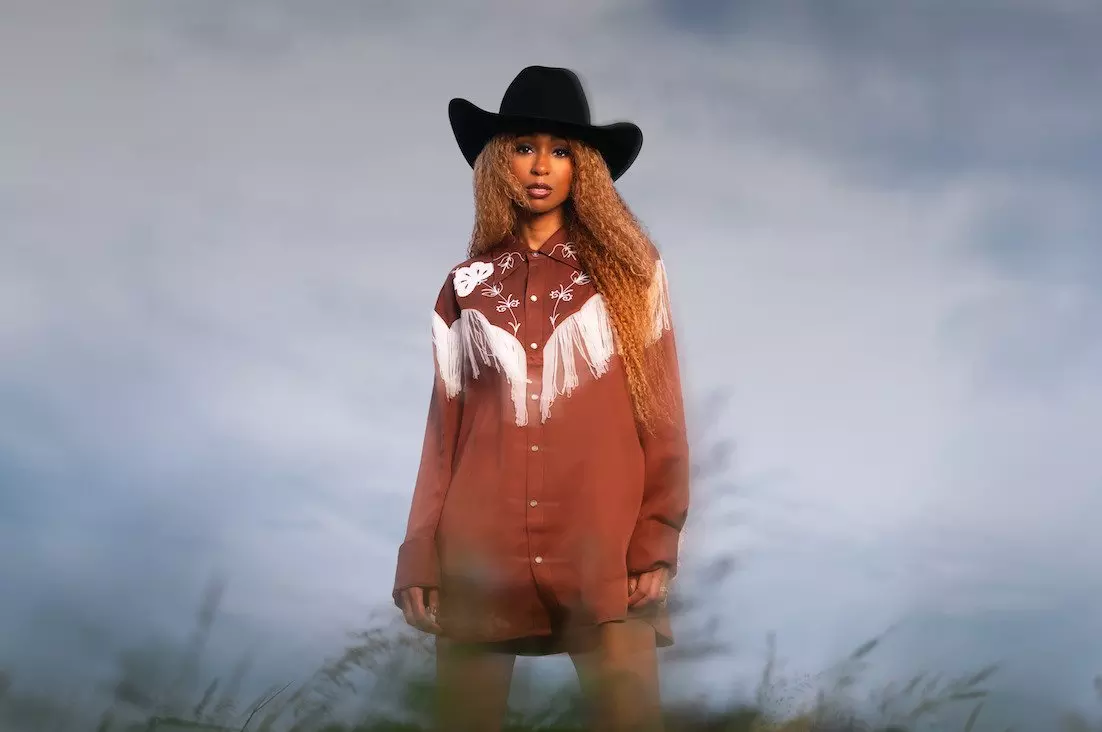
How Tiera Kennedy's 'Rooted' Helped Her Turn Rejection Into Empowerment
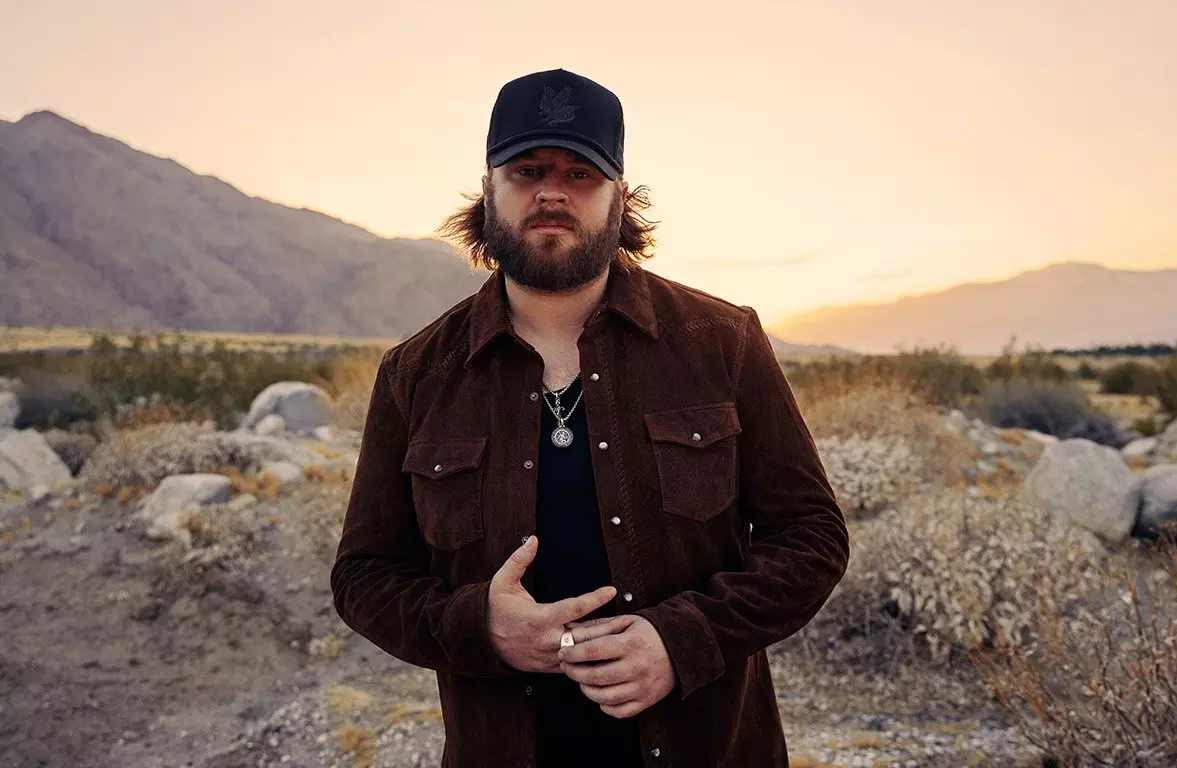
Nate Smith On New Album 'California Gold,' The Country-Rock Movement, & What "Making It" Means To Him
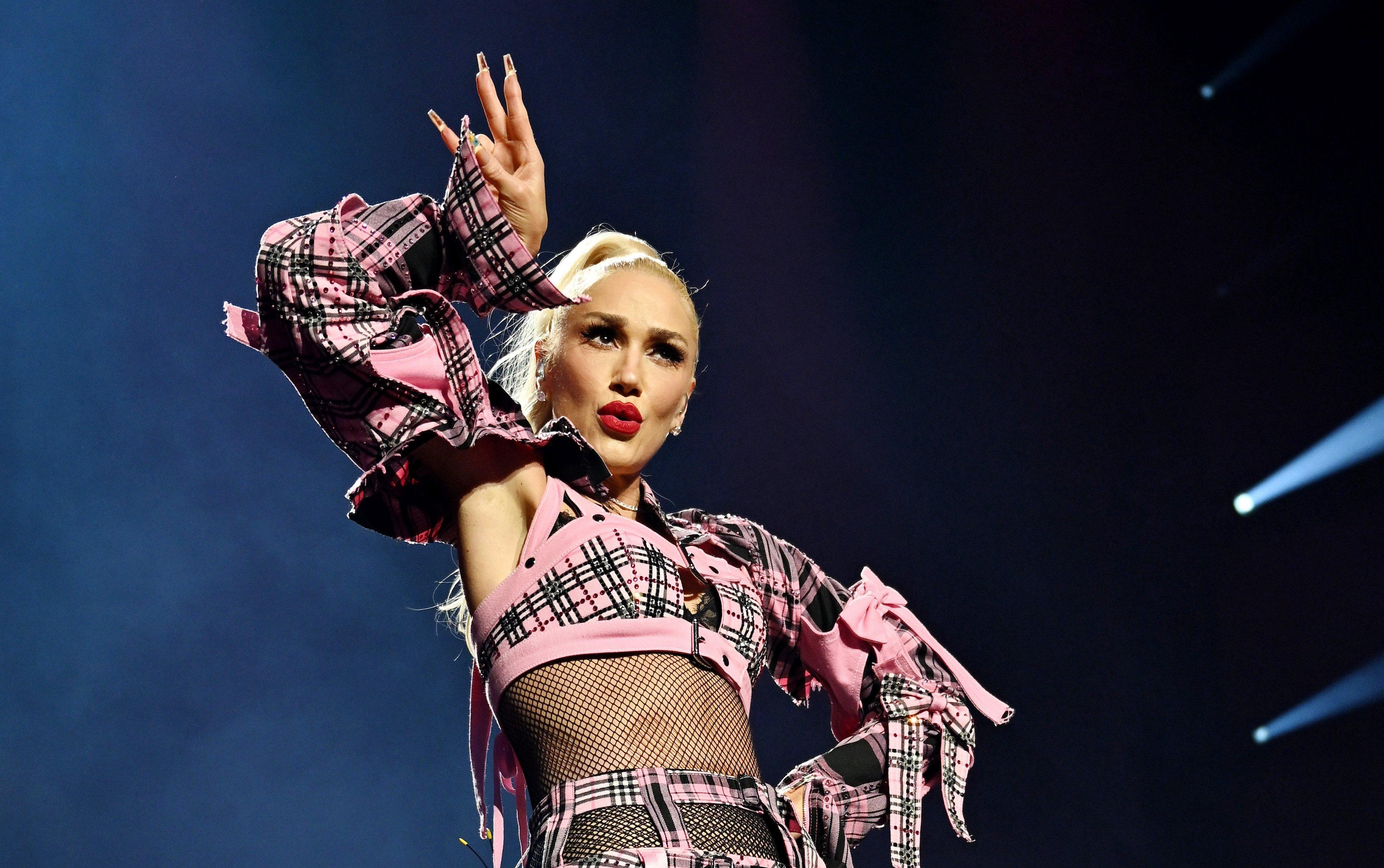
Photo: Denise Truscello/Getty Images for iHeartRadio
feature
How Gwen Stefani's New Album 'Bouquet' Celebrates A Career Built On Love In All Its Forms
As the pop veteran releases her first album in seven years, look back on the journey of romance, heartbreak and self-acceptance that led to her blooming marriage to Blake Shelton — and her happiest album yet.
Long before it became a viral TikTok trend, Gwen Stefani's pouty declaration of "I'm just a girl" on No Doubt's 1995 breakthrough single was simply an honest affirmation. She wailed about the frustrating tug of war between empowerment and vulnerability that came with womanhood — and she's been wearing her heart on her sleeve just the same ever since.
The three-time GRAMMY winner first made herself known as the quirky frontwoman of No Doubt, taking the reins of the male-dominated rock world before venturing into solo pop stardom and building her own brand along the way. But no matter her level of stardom, Stefani has never shied away from displaying her private life.
Love and music are a pairing just as tight-knit as Stefani's signature platinum locks and crimson lips. She has sung about the ebbs and flows of romance since the beginning of her career, from the pained realization of a relationship's end on "Don't Speak" (from No Doubt's 1995 album, Tragic Kingdom), to yearning for a "simple kind of life" on the band's 2000 LP, Return To Saturn, to navigating a divorce on her 2016 solo album, This Is What the Truth Feels Like. Her latest set, though, is blooming with a healthy love.
Bouquet, Stefani's fifth solo album and first in seven years, is heavily centered around her past, present and future with husband Blake Shelton. While the country star seems like the complete opposite match for a ska princess — who met Shelton while both were coaches on NBC's "The Voice" in 2014, and they've been married since 2021 — Stefani attributes the positive shift in her music to meeting him.
"For me, what happened in the breakup of my family, I had to try to pick up the pieces. Out of that was new love. Not only new love, but real love," Stefani tells GRAMMY.com on how her confidence blossomed over the years. "I don't feel like I ever experienced that until I felt what it really felt like to be loved. When someone loves you in a pure way, it does make you feel like you can see inside of yourself what they're seeing for the first time.
"Love is hard to explain, but there's something spiritual about it. I feel like we're all constantly blooming and re-blooming," she continues. "We are growing and evolving, and out of pain, usually you find things inside of yourself that you didn't know you had. Being able to have an outlet like songwriting to be able to learn from yourself is an incredible blessing that I have been given."
"We can watch our garden grow," Stefani croons on album cut "Reminders." While the line refers to Shelton, it's a fitting sentiment for the year she's had. Bouquet arrives just three days after the 20th anniversary of her GRAMMY-nominated debut solo album, Love.Angel.Music.Baby, and seven months after the singer reunited with No Doubt at Coachella — their first performance together in nine years.
As "Reminders" displays, Stefani blissfully sings about finally finding peace and hope on Bouquet. Though it's her most upbeat celebration of love to date, it's also a culmination of the journey she's endured navigating it in all its forms — from very public breakups, to motherhood, to spirituality and finally finding true love.
Stefani's career began as the lead vocalist of No Doubt in 1986. Following a breakup with band member Tony Kanal, she used the band's breakout third album — 1995's Tragic Kingdom — as her personal diary. The singer co-wrote all but one song, and the rawness of the lyrics shot Tragic Kingdom to No. 1 on the Billboard 200 chart. Stefani continued to weave in her love life in the music, from wanting to be a wife on 2000's Return of Saturn and struggling with a long-distance relationship on 2001's Rock Steady.
Her growing confidence as the band's co-writer led to her solo debut album, 2004's Love. Angel. Music. Baby. The album was a complete departure from No Doubt, as Stefani experimented with glossy '80s electro-pop, new wave, hip-hop, R&B, and even spoken word. While the first three singles presented more of her confident, commanding frontwoman side — including the Billboard Hot 100-topping smash "Hollaback Girl" — and the album featured themes of money and partying at the club, love remained at the forefront.
"Born to blossom, bloom to perish/ Your moment will run out 'cause of your sex chromosome," she reminds herself about wanting to be a mom on lead single "What You Waiting For?" On "Cool", she accepts her friendship with No Doubt's Kanal after healing from their breakup. Album cuts "The Real Thing" and "Serious" best show off Stefani's romantic side; the latter served as a love letter to her then-husband, Bush frontman Gavin Rossdale, and "Serious" declared in the first verse, "Call the doctor cause I am sick in love/ And I can't help it."
"There was so much freedom in my own heart and soul," Stefani says of her early solo days. "I had such a clear direction and I felt like I couldn't be stopped. The ideas and clarity on the art that I was creating was so easy to access. There was something so pure about this."
L.A.M.B. achieved massive success, debuting at No. 7 on the Billboard 200 chart and earning six GRAMMY nominations, including one for Album Of The Year. The album's success is attributed to not only Stefani stepping out of her sonic comfort zone, but her maintaining the same authenticity she brought to No Doubt's music.
"People know when something is authentic and something is not trying to do anything but just be – maybe that's why [it resonated]," she says. "It was simply going to be my fun, dance, guilty pleasure album and me trying to recreate things that inspired me from high school. I feel super grateful to reach anyone with the music that I've created."
By the time she delivered 2006's The Sweet Escape, Stefani had experienced big life changes, Along with becoming a first-time mom, she was dealing with marital issues, which she alludes to throughout the album — and, ultimately, led to a more melancholy feel than its predecessor.
On the title track, she envisions a fantasy to avoid real-life problems ("I can see that you're angry by the way that you treat me/ Hopefully you don't leave me, wanna take you with me"), and tries to hold on to her relationship on the "4 In The Morning" ("All I wanted was to know I'm safe/ Don't wanna lose the love I've found"). While the album may not express a happy love, it uncovered a deeper side of her vulnerability.
Within the decade after The Sweet Escape, Stefani took some time away from music as she focused on motherhood (she had another son in 2008). She reunited with No Doubt on 2012's Push and Shove, their first album in 11 years, which refueled Stefani to work on her third solo album. But it would still be four years until a full album materialized, as 2014 marked both the birth of her third son and her first season on "The Voice." A year later, Stefani endured a major life change: divorcing Rossdale, after discovering his alleged infidelity.
The heartbreaking revelation led to 2016's This Is What the Truth Feels Like. The super-confessional album revealed Stefani's healing process following her divorce (the tearful "Used To Love You" and the scornful "Red Flag"), but it was balanced by her new love with Shelton after meeting on "The Voice." From the bubbly "Make Me Like You" ("Thank god that I found you," she sings) to the yearning on "Misery" ("I'm thinking things I never thought before/ Like what your love would taste like/ Give me more," she pleads) to the flirtatious "Send Me A Picture," Stefani was shamelessly reveling in newfound happiness.
"I look back at each album that I've been part of and think about how they came about and what the inspiration was; and what I was going through at the time," Stefani says. "This Is What The Truth Feels Like was a unique album because this was the worst time of my life and the only thing I could turn to was God, prayer, my family, and music. It was the only way I knew how to save myself. I started writing that record so I wouldn't go crazy.
"I made the album quickly, in about eight weeks. About halfway through writing it I had this gift of love that was right there. I didn't know it was going to be there and I got to write about that," she continues. "It was an expression of two things happening at one time — something ending and something bringing me back to life. I wasn't thinking too much about the production on this album, it was more me trying to get out lyrically what I needed to get out."
Following This Is What the Truth Feels Like, Stefani's aura felt lighter and more self-assured as she reclaimed her confidence as both an artist and a woman.
This shift was mainly attributed to her adoration for Shelton, which thus inspired her music after that. He was featured on the title track of Stefani's bubbly holiday set, 2017's You Make It Feel Like Christmas, and they released two country duets in 2020, "Nobody But You" and "Happy Anywhere." Though the singles were Stefani's first foray into the genre, her chemistry with Shelton resonated: both went to No. 1 on Billboard's Country Airplay chart.
Stefani also dabbled in ska again with 2020's "Let Me Reintroduce Myself" and 2023's "True Babe," but even she admits that wasn't the right direction ("I was circling the past and I kept going around these cul-de-sacs," she says). So she stuck to her instincts: recording blissful tunes that emulated her life.
The winding roads of Stefani's career — and love life — have now led to 2024's Bouquet, which she deems a "whole different energy." But while the cover features Stefani rocking a cowboy hat and the album was recorded in Nashville with famed country producer Scott Hendricks, it's far from a country album. Rather, the 10-track project is a wistful blend of '70s-inspired pop and yacht rock that reflects the joy Stefani feels.
"I got engaged and married, so writing this album was writing about this new part of my life. When I finished doing the songs, I felt uncomfortable about the production — not because I didn't love it, because I did, but it just felt like I was repeating myself," she says. "It felt like when you go back into the closet and find something old from high school and try to put it on and think it's going to look good and it's just not working anymore. I didn't want to try to compete with the past at all.
"In my mind, it was clear — I needed to go in and make the record have no genre and make the sound creative with live musicians and make it feel live," she adds. "The combination of the pop songwriting and the organic live band is what created the sound of Bouquet, [which] sounds unique from anything else I've done."
The album documents Stefani's eight-year transition following the weighty This Is What The Truth Feels Like. Lead single "Somebody Else's," also the album's opening track, summates the healing she's done in order to unlock this new life chapter. "Everyday with you is rock bottom/ Leavin' you saved me, my God/ Look at me blossom/ You're somebody else's problem," she says with a wink on the chorus.
From there, Stefani leaves that past behind as she gushes about being so deep in love and not wanting to mess it up. The ballad "Swallow My Tears" discusses how an old relationship can impact a new one. "The past keeps chasin' me around/ I thought I lost it but then it found me/ Like it always does/ Dragging me back to who I was," she reflects. "Give me a second I need to swallow my tears."
The ballad is one of the singer's most honest songs to date. As a result, she says recording it felt like an emotional release: "I've been learning through my spiritual faith journey that it's about growing, learning, evolving, getting better and trying to become the person that you're meant to be in the world."
Part of Stefani's journey is rooted in reassurance, which ties "Purple Irises," her breezy country-pop duet with Shelton, together. One of the first songs written for the record, it adds another chapter to her fairytale life with Shelton. "I got you, and you got me/ And do you still think I'm pretty? And are you happy?" Stefani ponders even after years deep into her marriage.
She uses flowers as a metaphor for their relationship throughout the entire album, with the most autobiographical moment being the title track. "We met when my heart was broken/ Thank God that yours was too/ So lucky that you were going through what I was going through," she reflects on the opening verse. (Shelton was also going through a very public divorce from Miranda Lambert as their relationship started to, well, blossom.)
Stefani continues to bare her soul, confront her insecurities on "Pretty" ("I never felt pretty 'til you loved me/ I always felt pretty unlucky") and showcasing her appreciation for finally finding a healthy relationship on "Empty Vase." "Why did it take so much time?/ You've always been the one I've been trying to find/ I know you'll raise my sons right," she tearfully sings atop tender acoustic strings. And for No Doubt fans nostalgic for Stefani's pre-mainstream punk days, Bouquet's rocking "Late To Bloom" shows the singer hasn't forgotten her roots.
The singer's artistry is kaleidoscopic, from being a ska princess to pop's Hollaback Girl to a chart-topping country duet partner. But Bouquet is a reminder of what has always made her music so enduring, and what still resonates after three-plus decades: her vulnerability.
"I think we all go through points in our life when we question, 'What is my purpose?' When I found out I could write songs, and those songs had the impact they had, it was clear this might be my gift," Stefani explains. "I get so much joy and satisfaction. I feel like I have something to offer to the world when I'm writing songs.
"It's the most incredible thing to have a song that captures a moment in my life that talks back to you, heals you, and you learn from it," she adds. "The hope is that someone else can get that same blessing from the song. The struggle is worth it."
The Latest Pop Music News & Releases
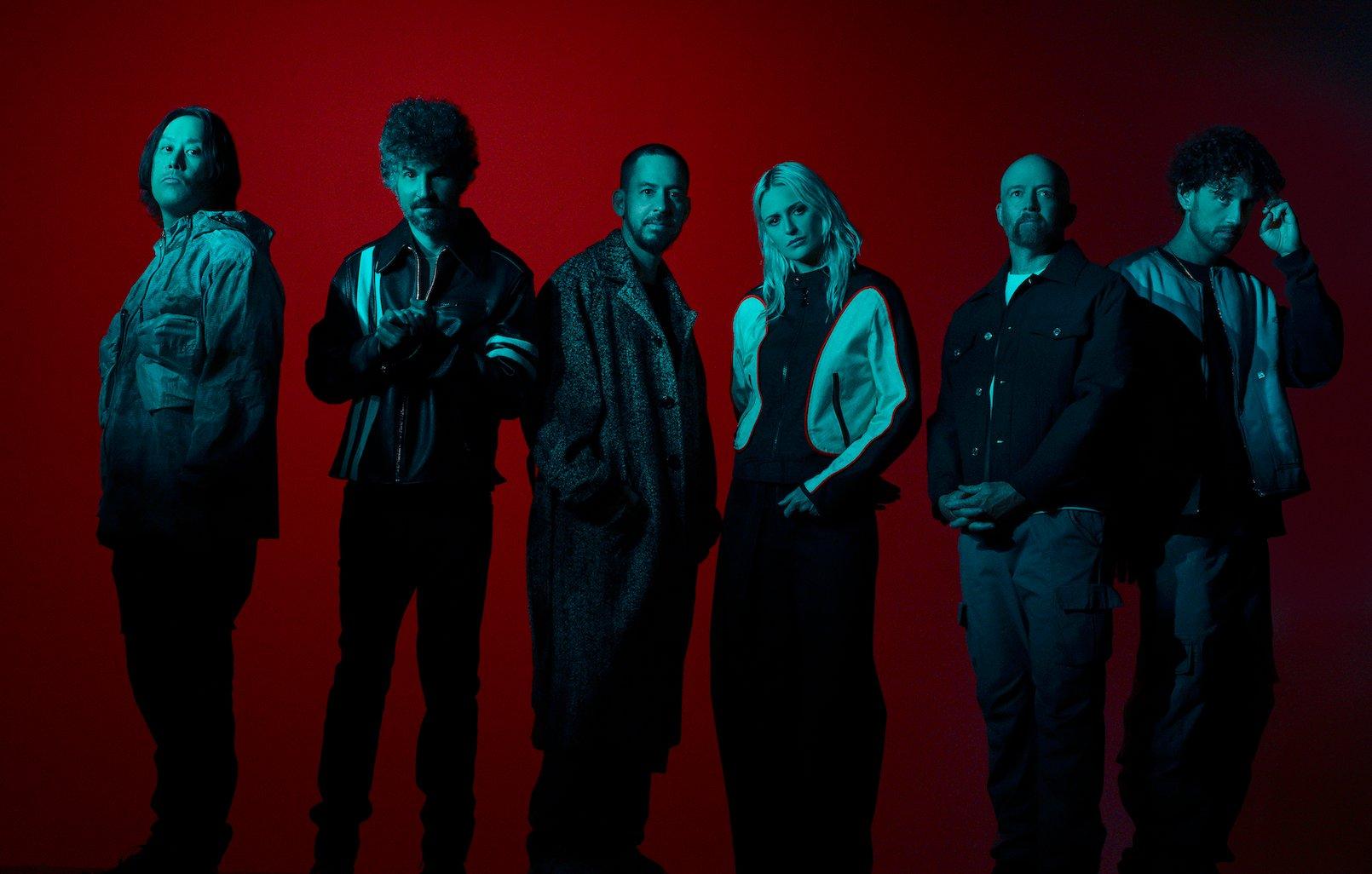
Photo: James Minchin
feature
How Linkin Park's New Album Honors Chester Bennington
With 'From Zero,' Linkin Park ushers in a new chapter featuring a female singer. But as the music and the band ensure, it's simply a continuation of the legacy that the late Chester Bennington helped build.
Linkin Park became ubiquitous with their 2000 debut LP, Hybrid Theory, and reinforced their status as the 21st century's definitive nu-metal band with each album thereafter. But it's been seven years since Linkin Park released new music, priming a new generation to discover their one-of-one impact — including Mike Shinoda's daughter.
In September, the band's co-lead vocalist and producer told Jimmy Fallon about a recent instance when his daughter rejected his attempt to teach her how to play guitar. As he recalled, it wasn't until his wife, Anna, intervened and told her she should listen to him: "My daughter goes, 'What does he know about performing?'"
Shinoda's daughter — along with 11 million other viewers — were reminded of Linkin Park's instinctive magnetism during the Linkin Park: FROM ZERO global livestream in early September. The performance coincided with the announcement of From Zero, the band's first LP since frontman Chester Bennington died by suicide on July 20, 2017, as well as the introduction to a new lineup.
Shinoda, lead guitarist Brad Delson, DJ/turntablist Joe Hahn, and bassist David "Phoenix" Farrell reconnected with the innocent, pure creativity that catapulted Linkin Park in the first place. But adding Dead Sara's Emily Armstrong as the new co-lead vocalist and Colin Brittain in place of Rob Bourdon on drums crystallized From Zero, due Nov. 15, and served as the latest iteration of a legacy built on reinvention.
"Before Linkin Park, our first band name was Xero," Shinoda said in a From Zero press release statement. "This album title refers to both this humble beginning and the journey we're currently undertaking. Sonically and emotionally, it is about past, present, and future — embracing our signature sound but new and full of life. It was made with a deep appreciation for our new and longtime bandmates, our friends, our family, and our fans. We are proud of what Linkin Park has become over the years and excited about the journey ahead."
The first taste of From Zero was "The Emptiness Machine," an explosive, guitar-laden track that possesses similarly heightened lyrics and experimental sonics to Linkin Park's past material. Within two weeks of its release, "The Emptiness Machine" hit No. 1 on Billboard's Hot Hard Rock Songs chart, where it remains after nine weeks as of press time. With a six-week run atop the Mainstream Rock Airplay chart as well, the song's success showed that there was still an unwavering attachment to Linkin Park, no matter the lineup.
Several comments on the video for "The Emptiness Machine" further proved that. "No, she doesn't sound like Chester. But she sure sounds like Linkin Park," one fan wrote. As another added, "Emily roars like a lion and it's amazing that I feel like I can feel Chester roaring in the background. Thank you for coming back."
Naturally, there were some skeptics of the new iteration, including Bennington's mother, Susan Eubanks, and his son, Jaime (Eubanks told Rolling Stone that she feels "betrayed"; on social media, Jaime accused Shinoda of "quietly erasing my father's life and legacy in real time"). But as Shinoda reassured fans at a recent performance, "It is not about erasing the past. It is about starting this new chapter into the future and coming out here for each and every one of you."
Fans can also rest assured that Armstrong wants to honor Bennington, not replace him. In fact, Bennington was who helped Armstrong realize her potential as a frontwoman.
"I was in a band when [Hybrid Theory] came out," Armstrong recalled to Billboard. "'One Step Closer' was the song for me, and I was just like, 'Holy s—, that's what I want to do. As a singer, I want to be able to scream.' That album was everything. I've listened to it a trillion times."
When it comes to the importance of her role, she added, "I'm on cloud nine, but then it hits you that there's a lot of work to be done. And going into these [older] songs, by a singular voice that's beloved by so many people — it's like, 'How do I be myself in this, but also carry on the emotion and what he brought in this band?'"
After all, Linkin Park was predicated on Bennington's boundless, fearless voice. Shinoda wrote a January 2018 op-ed for Kerrang! describing meeting Bennington: "I knew Chester Bennington was going to change my life from the moment he opened his mouth to sing… Chester was so great that day, the guy who was waiting to try out after him just left. He knew. Even though we'd sent Chester our songs beforehand, he later admitted to me that he'd never done a screaming or yelling part on a track before. That was shocking to me. He could do it better than anyone I'd ever heard."
The industry failed to see what was right in front of them several times over; labels passed on Linkin Park before and after Bennington joined. As Shinoda suggested to Vulture in 2023, "Here's what I assume they thought: Our thing, the combination of elements, was too esoteric. We loved DJ Shadow, Fatboy Slim, Moby, Aphex Twin, and Portishead… With that stuff in the music, labels were like, 'Who's going to listen?' And then on top of it, we were more introspective. What we didn't like about what was going on in the scene was that it was very frat rock. It was toxic masculinity."
As it turned out, their unexpected mash-up of hip-hop, alternative, and full-throttle rock resonated in droves. Reaching No. 2 on the Billboard 200, Hybrid Theory became the top-selling album in the U.S. in 2001, and by April 2002, it was 8x Platinum-certified by the Recording Industry Association of America (as of press time, the album is now 12x Platinum). Their uninhibited musicality — led by Bennington's piercing, raw scream-singing and complemented by Shinoda's melodic rapping — was exactly what made Linkin Park stand out, and what helped them push the boundaries of what rock can be ever since.
As Shinoda noted, Linkin Park also resonated because they weren't afraid to be vulnerable. Hybrid Theory's "Crawling" and the diamond-certified "In The End" cemented Linkin Park's unique position to soundtrack teenage angst (or confusing emotional intensity of all ages) before ruthless vulnerability was normalized in the mainstream.
Because Hybrid Theory established such an eclectic sonic palette as their baseline, Linkin Park was free to tinker sonically. Their unprecedented genre-melding and emotional honesty proved to be a winning recipe; 2003's Meteora, 2007's Minutes To Midnight, 2010's A Thousand Suns, 2012's Living Things, and 2017's One More Light each debuted at No. 1 on the Billboard200. (Only 2014's The Hunting Party failed to reach the top spot, but still landed at No. 3.)
Linkin Park is inextricably tied to people hearing their pain in Bennington's voice. Unfortunately, the songs felt so genuine because Bennington pulled from his childhood trauma and lifelong struggles with addiction and depression. In February 2017 — just five months before taking his own life — Bennington explained the inspiration behind One More Light's lead single, "Heavy," to Music Choice: "The opening line, 'I don't like my mind right now,' that is me 24 hours a day. If I get stuck in here, I just find life really hard, and it doesn't have to be."
His openness about his struggles and heartbreaking death made posthumously hearing Bennington's voice on "Lost," a track from 2023's Meteora (20th Anniversary Edition), all the more gut-wrenching. Reinventing without an irreplaceable piece felt impossible.
"Part of working under darkness was simply the fact that we didn't know how far we would get in our efforts," Hahn told Billboard upon the debut of the band's new formation. "We didn't want to set ourselves or anyone else up for disappointment if we weren't able to do it. This has been years of struggling to understand what it can and should be."
Hanging out together again without putting any pressure on producing music allowed Hahn, Delson, Farrell, and Shinoda to organically find a place of understanding. The October 2017 Linkin Park and Friends: Celebrate Life in Honor of Chester Bennington concert could have been the end of Linkin Park, but it didn't have to be.
As Shinoda told Apple Music's Zane Lowe, he had a barometer for what it would take to reshape Linkin Park's identity around someone else's voice. But he heard it in Armstrong: "When I started to hear Emily's voice on things, it was like the first time that my brain would accept it as a Linkin Park song."
From Zero strikes the same chord from a refreshed perspective. As new songs like "Over Each Other" highlight, the new Linkin Park didn't dial back on the band's signature unguarded lyricism, and leaned into the same visceral feeling of their groundbreaking rock sound. Linkin Park still has something to say, and they're set on delivering pointed messages in a way that Bennington would be proud of. The album feels like quintessential early Linkin Park — and there's a reason for that.
"We felt like we have a new energy," Shinoda shared with Lowe. "It's almost like going back in time and going back to start and starting again, except you have the benefit of all the stuff you know."
There would be no Linkin Park without Chester Bennington, and traces of him will live in the music forever. When Armstrong sings, "I only wanted to be part of something" in "The Emptiness Machine," you can believe her with the same conviction you could always believe Bennington. From Zero and a massive 2025 world tour reignites the past's magic — and leaves the door open for an equally inspired future.
Latest News & Exclusive Videos

How Major Lazer's 'Guns Don't Kill People…Lazers Do' Brought Dancehall To The Global Dance Floor

YOASOBI Performs "Idol" | Global Spin

'Wicked' Composer Stephen Schwartz Details His Journey Down The Yellow Brick Road

GRAMMY Museum Expands GRAMMY Camp To New York & Miami For Summer 2025

Living Legends: Brooks & Dunn On How 'Reboot II' Is A Continuation Of "Winging It From Day One"




